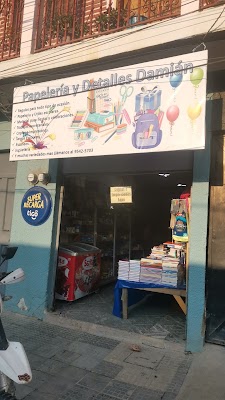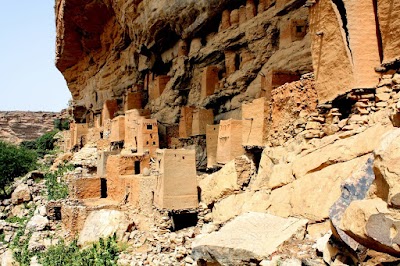Traditional Music Venues (Salles de Musique Traditionnelle)
Related Places
Overview
The Ségou Region, nestled along the banks of the Niger River in central Mali, is a dynamic hub of political, economic, and cultural activity. Known for its vibrant traditional music scene, this area showcases a rich tapestry of musical heritage from the Bambara, Bozo, Somono, and other ethnic groups. With an array of music venues, Ségou invites visitors to delve into the sounds and stories that define its cultural identity.
One of the region's most captivating attractions is the Festival sur le Niger, an annual extravaganza that transforms the riverside town of Ségou into a lively celebration of music, dance, and joy. Usually held in February, this festival draws international tourists eager to experience genres ranging from traditional Malian music to contemporary African rhythms. Beyond the performances, the festival features workshops and exhibitions aimed at preserving and promoting the richness of Malian culture.
For those seeking a more intimate musical experience, the small yet charming local music venues in Ségou Town are must-visit spots. The Bognogoni Centre, for instance, is famous for its traditional Sogoba dances, offering live performances that capture the essence of regional folklore. Here, you can enjoy the enchanting sounds of the kora, balafon, and djembe, played by talented local musicians in an authentic setting.
The cultural significance of these music venues extends far beyond entertainment. They serve as communal spaces where oral histories and cultural legacies are passed down through generations. Traditional praise singers, or griots, play a pivotal role, captivating audiences with storytelling, music, and dance that weave together the region's history and ancestral tales.
Each venue is steeped in history, often located in areas that were once vital meeting points for traders and warriors during the pre-colonial era. This rich historical context adds depth to the performances, as many venues have been operational for decades, preserving the authenticity and traditional styles of Malian music amidst the influence of modern genres.
An intriguing aspect of Ségou's music scene is its diversity of styles, reflecting the region's historical interactions among various ethnic groups. The Bambara are renowned for their epic narrative songs, while the Bozo are celebrated for river songs that echo their fishing heritage. Together, these cultural expressions offer tourists a holistic view of Malian music and traditions.
Moreover, many music venues double as educational centers, providing opportunities for visitors to take lessons in traditional Malian instruments or participate in dance and storytelling workshops. These interactive experiences enhance your understanding of the music and allow for active engagement with the local culture.
The community-driven nature of these venues is noteworthy; proceeds from ticket sales often support local musicians and cultural initiatives. By attending performances, you contribute directly to the sustainability and growth of the vibrant local arts scene.
Finally, don’t miss the bustling markets that spring up around music venues during performances and festivals. Here, you can discover a variety of locally crafted goods, souvenirs, and traditional foods, extending your sensory experience of Ségou's rich musical culture.
In summary, the traditional music venues of the Ségou Region are essential for any traveler seeking to immerse themselves in Mali's rich cultural tapestry. From grand festivals to intimate performances in historic settings, the musical experiences in Ségou provide both entertainment and education, offering a unique and unforgettable glimpse into the soul of this vibrant region.





